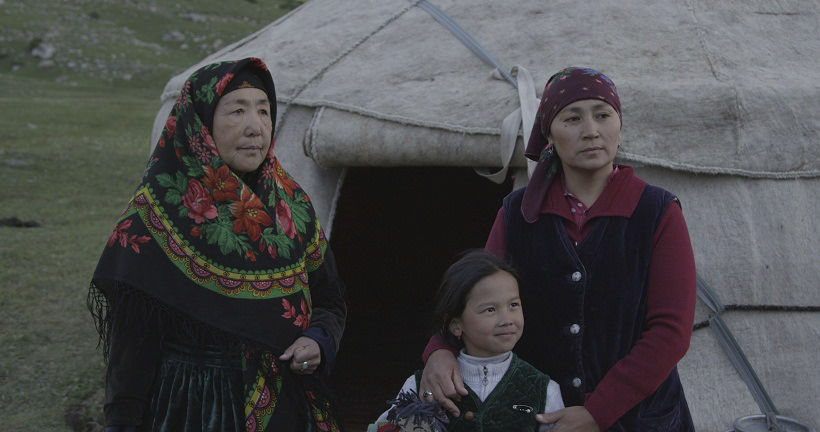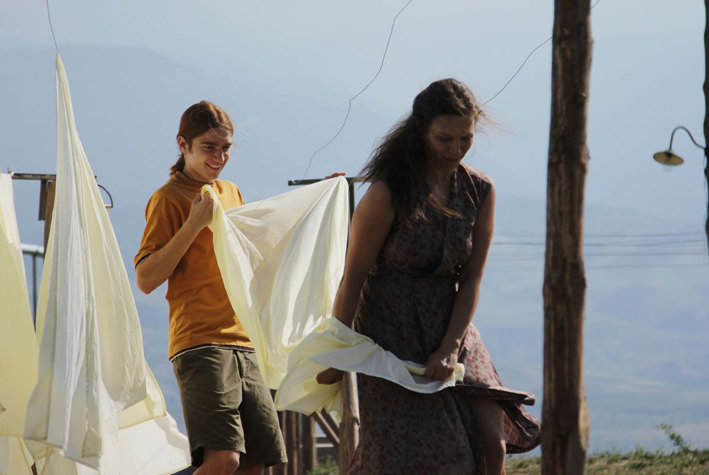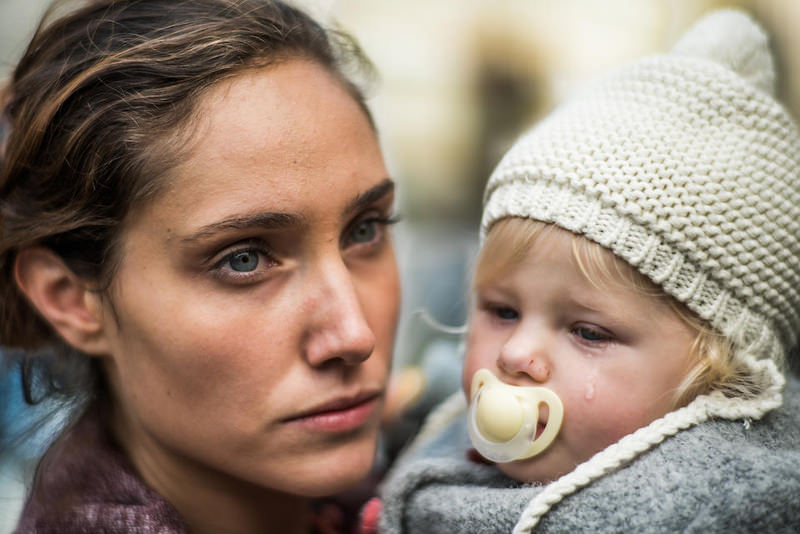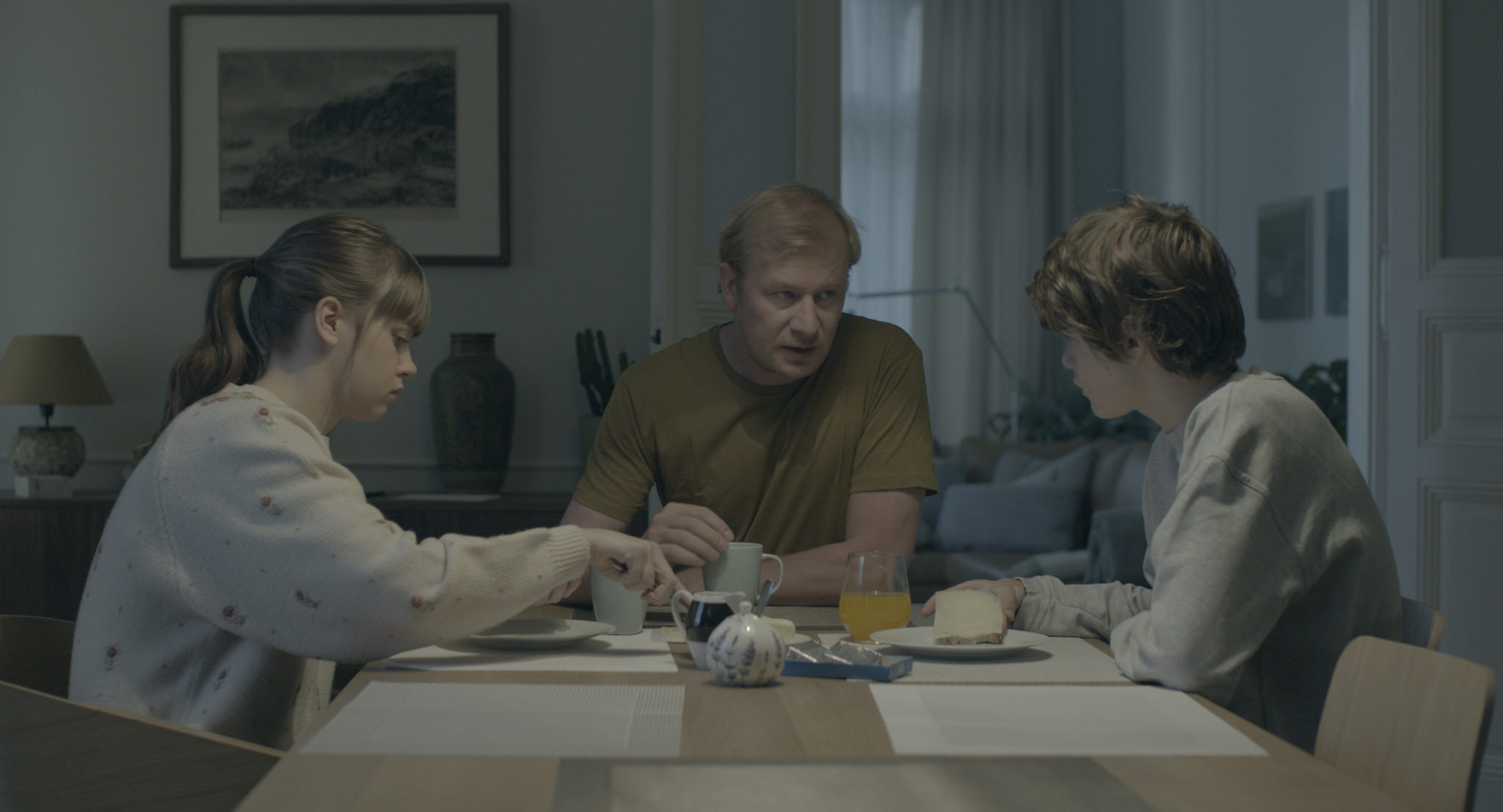Organized by the Istanbul Foundation for Culture and Arts (İKSV), the 35th Istanbul Film Festival is hosting a major film competition with the theme "new perspectives on cinema" for the Golden Tulip, the grand prize of the festival. The Istanbul Film Festival Golden Tulip International Competition category features 15 films from 14 countries from around the world. Chaired by director Pablo Trapero, the International Golden Tulip jury is composed of actors Melisa Sözen and Lior Ashkenazy, video artist Ali Kazma and producer Ewa Puszczynska. The Golden Tulip Award, which is presented in the memory of İKSV's former chairman and one of the founders of the Istanbul Film Festival, Şakir Eczacıbaşı, is supported with 25,000 euros in prize money this year. A total of 10,000 euros of the prize money will be granted to the director of the winning film, while 10,000 euros will be presented to the company that will undertake the distribution of the film across Turkey. Moreover, 5,000 euros will be given to the director of the film that will win the Special Jury Award.
Here are the films featured in the Golden Tulip International Competition Category:
'Sutak' (Heavenly Nomadic) by Mirlan Abdykalykov

Mirlan Abdykalykov's debut film "Sutak" was the very first Academy Award nominee from Kyrgyzstan, and one that won the general approval of movie buffs at the Karlovy Vary Film Festival. It is a lyrical portrait of fading traditions. When the middle-aged meteorologist Ermek arrives at a remote mountain village, a major shift occurs in the lives of the family's members who maintain routine lives.
'Eva Doesn't Sleep' by Pablo Agüero
Pablo Agüero, one of the most exciting new directors of Argentinian cinema, sheds a light on the contemporary history of his country that is shaped by sorrow and broken dreams through a lifeless body. In 1952, Argentina´s beloved First Lady, Eva Peron, dies of cancer and her dead body is mummified to be placed on display. Three years later, Eva's husband, Argentinian President Juan Peron, is forced to leave his country following a military coup. Eva's lifeless body is now controlled by the junta, which is utterly aware of the destructive political power this body holds. The director offers an astonishing experience to movie buffs though his visual choices, and provides one of the most interesting roles of actor Gael Garcia Bernal's career.
'Peace to Us in Our Dreams' by Sharunas Bartas
Veteran Lithuanian director Sharunas Bartas' much anticipated film "Peace to Us in Our Dreams," which premiered last year at the Cannes Film Festival, is one of the most heartbreaking films of the year. Bartas directs, writes and stars in the film along with his real-life daughter, Ina Marija Bartaite. Most of the dialogue featured in the film were impromptu.
'The Childhood of a Leader' by Brady Corbet
American actor Brady Corbet's directorial debut "Childhood of a Leader" follows the story of an imaginary fascist leader. A powerful American diplomat moves to France with his pious wife and young son to take part in the Versailles Peace Treaty, which will end World War I in 1918. However, the diplomat portrays the increasingly out of control behavior of his privileged son as the forerunner of fascist tendencies. Partly based on Jean-Paul Sartre's namesake short story, the film features Robert Pattinson, Berenice Bejo and Liam Cunningham in the leading roles. Corbet co-wrote the script of the film with his wife, Norwegian actress Mona Fastvold, and included dialogues in English and French in the film. The score of the film was composed by avant-garde musician and producer Scott Walker.
'Kor' (Ember) by Zeki Demirkubuz
Turkish director Zeki Demirkubuz's 11th film is featured in the International Golden Tulip Competition. Shooting began on February 2015 in various districts of Istanbul, especially Eyüp and Güzeltepe. The Turkish-German co-production stars Taner Birsel, Aslıhan Gürbüz, Caner Cindoruk, İştar Gökseven, Talha Yayıkçı, Dolunay Soysert and Çağlar Çorumlu in the leading roles.
'Les Demons' (The Demons) by Philippe Lesage
The second fictional feature-length film of Philippe Lesage, who previously directed documentary films, takes an admirably restrained look at childhood. Born in Quebec, Canada, Lesage studies the world of children with utmost calmness while portraying a 10-year-old boy who is in love with his teacher and tries to deal with the tension between his parents. "Les Demons" drew great attention at the Montreal New Cinema Festival and San Sebastian Film Festival, and it became the most watched film of 2015 in Quebec. Lesage, whose directorial skills are reminiscent of Michael Haneke's and Denis Villeneuve's, is inspired by his own childhood memories. The director is planning to visit Istanbul for the festival.
'The End' by Guillaume Nicloux
Guillaume Nicloux, director of "Valley of Love," which was screened at Filmekimi last year, orchestrated the world premiere of his new film "The End" at the Berlin International Film Festival. With "The End," Nicloux returns to the fantastic and intricate world he created at the beginning of his career, and tries his hand at telling the darkest story of his personal history. A hunter, accompanied by his dog, is on a stroll deep in the woods. Within a few hours, he gets lost in his habitually familiar environment. He has to spend the night in the woods, unaware of what awaits him.
'Un Monstruo de Mil Cabezas' (A Monster with a Thousand Heads) by Rodrigo Pla
After drawing worldwide acclaim with his first feature-length film "The Zone" and competing for the Golden Tulip four years ago with "The Delay," director Rodrigo Pla returns to the International Competition category with his latest film "A Monster with a Thousand Heads." Premiering at the Venice Film Festival, the film follows the story of a desperate woman's struggle against the system. Hailed for Jana Raluy's captivating performance, "A Monster with a Thousand Heads" is a thrilling social satire. The film's script was adapted to the silver screen from the namesake novel of Uruguayan author Laura Santullo. The film was applauded at the Warsaw Film Festival and won the grand prize for "Best Director." Pla will visit Istanbul to participate in the festival.
'Jajda' (Thirst) by Svetla Tsotsorkova

Young Bulgarian director Svetla Tsotsorkova's debut feature-length film "Thirst" is one of the most striking first films of the year, notable for its simplicity and ability to set a chilling atmosphere. The film focuses on a family who earns their living washing bed linens for a hotel. However, when the water is turned off, the family cannot continue their job. A father-daughter pair arrives to solve their water problem, wreaking havoc on the family dynamics. The thirst for love is so unquenchable that only death will provide release.
'Belgica' by Felix van Groeningen
The new film of Felix Van Groeningen, winner of the Golden Tulip with his film "The Misfortunates," will once again compete for the Golden Tulip. The film, which stands out with its score as well as its structure, takes place in Belgica, one of the coolest bars in Brussels. "Belgica," which brought the "Best Director" award to Groeningen at the Sundance Film Festival, is a film that is not possible to sit and watch quietly.
'Zjednoczone Stany Milosci' (United States of Love) by Tomasz Wasilewski
"United States of Love" is the third feature-length film of Tomasz Wasilewski, who is one of the outstanding Polish directors. The film centers on the story of four women in the 1990s in Poland searching for passion and love as they try to escape their miseries. The melancholic and touching story uses political and social change in Poland during the rise of the post-Soviet Solidarity Movement. The director was inspired by his parent's decisions following the collapse of communism, and he adopts a perspective of a woman to make his story more striking. The film is captured by Oleg Mutu, the virtuoso Romanian cinematographer of such films as "4 Months, 3 Weeks and 2 Days," Beyond the Hills" and "In the Fog."
'Interruption' by Yorgos Zois
"Interruption" is a thriller that takes place in a single setting and in real time. Director Yorgos Zois said the film is inspired by a real-life hostage situation where the hostages did not realize they were being held captive. A post-modern adaptation of the Greek tragedy "Orestes" is interrupted by a young man who jumps on the stage and grabs the microphone. The audience thinks that this interruption is a way to create an interactive play, and they participate in the argument started by the young man; however, this entertaining experience soon takes a different turn and gets out of control. Premiered at the Venice Film Festival, this minimalistic film is the debut feature-length film of Zois and is inspired by a real event: When Chechen militants took an audience hostage in Moscow in 2002; however, the audience believed that it was a part of the performance.
'Ein Atem' (One Breath) by Christian Zübert

Having premiered at the Toronto Film Festival, "One Breath" by director Christian Zübert depicts the intersecting stories of two women's lives. Zübert references the current political climate as he illustrates the similar struggles of two women from different classes and countries. Through a kidnapped baby, the film studies concepts such as motherhood, nationality, the refugee crisis, Europe and borders. The script of the film was co-written by Christian Zübert and his wife, İpek Çetinkaya Zübert, who also animates the leading role of Ines. "One Breath" was also screened as the closing film of the Gijon Film Festival.
'Rodinny Film' (Family Film) by Olmo Omerzu

The Czech production "Family Film," which was praised at every film festival that the film attended throughout the year, brings a breath of fresh air to the stories about a familiar family in crisis. Young director Olmo Omerzu masterfully plays with audience expectations both in terms of style and content in her second feature-length film. Full of surprises at every turn, "Rodinny Film" features a praiseworthy performance by a canine actor as well.
'Auf Einmal' (All of a Sudden) by Aslı Özge
The first German film of director Aslı Özge, who won a Golden Tulip Award for "Best Film" with "Men on Bridge" as well as a Golden Tulip "Best Director" award with "Lifetime," opens with a quotation from Shakespeare's "Hamlet:" "There is nothing either good or bad, but thinking makes it so." After the party in Karsten's apartment, everybody leaves except Anna. Admiringly, Karsten approaches this mysterious woman. How could he have known that in a moment of weakness, his well-established life would spiral out of control and turn into a disaster? In this small, provincial German town, disappointment soon fuels anger, justice hides behind hypocrisy and evil gradually unfolds. In a unique way of visual storytelling, Özge is tempting a discussion where the line between good and bad is blurred.




